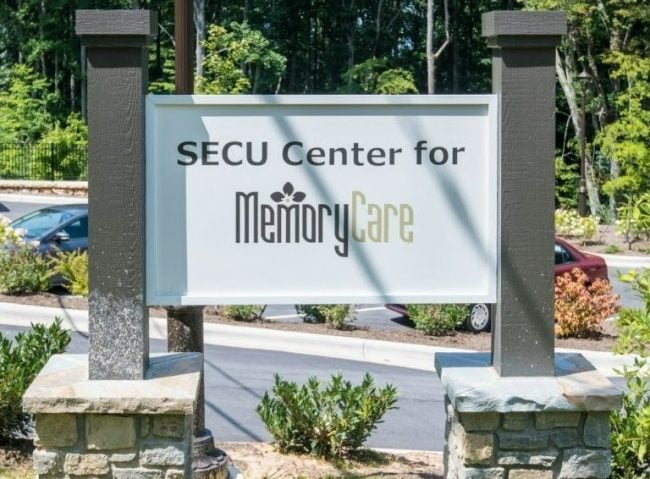ALBANY, N.Y. - The $4.9 billion Empire Corporate FCU is locatedin a quiet, almost sleepy part of Albany, N.Y. The modest Albanyairport is a few miles down the road and Empire itself is situatedin a predominantly residential area. But once inside the offices of1021 Watervliet-Shaker road, the scene is much different than theserene surroundings. It is a fast-paced, energetic environmentdriven by a fired up group of 124 full-time and 38 part-timestaffers. From an item processing operation that can take in acouple hundred thousand checks a day and process them in just sixhours, to a trading desk executing transactions for its 1,000-plusmembers, the three-floor, 66,000 square foot Albany headquarters isa fluid environment. Credit Union Times recently spent a dayon-site and two things were very clear - the management and staffare excited about what they are doing for credit unions and thereis a feeling that no one area of the corporate overshadows anyother. Concentrating on Continuity Empire was the corporate mostaffected by the 9/11 attacks - it's safe to say disaster recoveryis not what it used to be here. For starters, disaster recovery isout and business continuity is in. This is an initiative that hasstrong support from the top. "Disaster recovery had been focused onIT recovery, getting systems back up and running. We've shifted ourmindset from a narrow IT focus, to a broad holistic approach," saidChristopher Duwe, director of business continuity and projectmanagement for the corporate. Duwe himself is an example ofEmpire's shift in focus. He used to be within the IT department,but was moved out of IT to become his own department. NancyVirkler, SVP of Operations for the corporate is dogged on the needfor an enterprise-wide business continuity plan. "We used to ensureparts of the corporate would have power in an outage, but everydepartment here is important," said Virkler, pointing to a wallthat houses the corporate's new uninterruptible power supply (UPS).Taking that theme further, a trip outside shows this commitment ina more vivid way. There is a generator about the size of a smallschool bus that can supply the entire building with power. It is an800kw diesel-powered unit with a fuel tank capacity to provide 23hours of service. It is tested once a month and to Virkler'sdelight there is barely a flicker when the generator takes over for30 minutes as per regulation. It's during the few seconds while thegenerator is kicking in that the UPS system ensures no systemcrashes. "We have showers, bathrooms, beds. We can house everyonehere if we had to," said Virkler, who almost seems to be hoping fora snowstorm to try out that notion. Virkler is extremely proud ofhow Empire reacted during 9/11, but the corporate did learn youcan't count solely on third-party hot sites to provide back-up. Thecorporate has completely replicated its systems at another locationthat it runs - not a third-party vendor - making it much moreself-sufficient in a crisis. Virkler did not want the locationpublished. Virkler also led the charge to ensure top executivesdon't travel together so in the case of a tragedy, there wouldstill be continuity at the top. She'll have to get used to a bitmore risk with Empire Corporate CEO Joe Herbst, who is pursuing hispilot's license. Organized Chaos On the first floor is one ofEmpire's four item processing sites. The door leading into the roomis always locked, requiring a pass code to enter. Security is vitalfor item processing, given the sensitive information beingprocessed. The main processing room is rocking - literally. Loudmusic cranks over the humming of the sorters, as three younggentlemen, who even have a rocker look, work at a feverish pace.The rock n' roll atmosphere is indicative of the item processingprocess - organized chaos. From checks flying through the sorters,and data entry employees ripping out data on their keyboards, itseems hectic, but in fact is very organized, said Virkler. "Nothingnew here. Aside from a few variances this is how every otherfinancial institution in this business does it," she said. She doespoint out a few highlights. The building was built for Empire andthere is about a 12-inch "well" as she describes it under the itemprocessing floor that allows the corporate to run all its wires andensure the processing room doesn't require a raised floor like manydo. The big advantage? There's no ramp leading into the room, socarts of thousands of checks flow smoothly from one room to thenext, without putting a strain on anyone. Inclearing OperationsCoordinator Jason Barrios demonstrated the lifecycle of a checkonce it enters the building. From the green bags that come in fromthe couriers, to the "trunc" (short for truncation) room wherechecks wind up, in the end it's all about balance - the cash sheetshave to match the items, and everyone is happy. Usually there issome investigating and hand entry that comes into play to strikethat perfect balance. There are challenges with checks. Some areripped or crinkled and don't make it through the sorter. These arerepaired, bagged and tagged. Some checks have images that need tobe fixed before they are stored on optical disk. Credit unionchecks eventually land in the "trunc" room where they are kept for48 days. The checks have already been imaged on optical disk, sowhen checks are pulled from this room it is usually for a situationsuch as a CU working on tracking down a fraud scheme. The "trunc"room is actually not the final resting place of a processed check.After its 48 days are up, a shredding truck comes to Empire toshred the checks. The whole process is monitored on closed circuitTV. Barrios also showed how different it is for credit unions thatdon't truncate. One large New York CU, who will go nameless, hasits own shelf where its items are placed as they are quicklyreturned to the CU so it can send out to members, while the otherCUs' checks are stored in the "trunc" room. Empire, like othercorporates, is gearing up for image exchange, though Virklerdoesn't want to be too far ahead of the game. "I haven't chasedit," she said, noting that in this early stage image exchangeactually causes Empire to create more paper by producing substitutechecks. Once all institutions are on board, this step will fadeaway. She said the reason the move to electronic exchange didn'tcome sooner is because institutions have become so efficient atitem processing. As for a fire, the bane of an item processingoperation, Virkler points above to sprayers that are charged withFM 200, a chemical that is made to suppress fire in the room.Virkler, with over 30 years financial experience, said Empire hassort of been a rebirth for her. She joined the corporate sevenyears ago at 50 years old and has been able to dive into everyaspect of operations. "I have a passion for operations," she said.The Touchpoint On the second floor you'll find Mitzy Vivenzio, vicepresident of member services, who doesn't appear to have many baddays. Vivenzio describes her relationship with members as that offamily. "We get to know them so well, if they are having a baby ormarriage, we all know about it, and they know about us," saidVivenzio, who with 27 years under her belt is Empire's longesttenured employee. She started as a secretary and worked in a numberof departments before landing in member services where her admittedlove for people obviously fits. Vivenzio's department is unique inthat the member service reps have to know about everything thecorporate does. They may have to talk about CDs, an upcomingconference, item processing, and on and on. About two years agothere was a change in the department that some feared - the dreaded"s" word (sales). For customer service reps, having to "sell" theircallers can be a nightmare. Vivenzio said it's not a hard sellenvironment in the least. "We look at what can benefit our members.We see what's going on in the world and determine what might helpthem," said Vivenzio. It could mean telling a member about afinancial strategies conference coming up to help them deal withthe continued rate hikes. As Empire's SVP of Member Sales &Service Victor Vrigian, who has a sales background, put it, it'snot a hard sale environment, but a "qualified sales" environment.It still is a sales environment. A colorful dry erase boarddisplayed prominently holds some of the sales goals, and staffersare awarded tickets for certain accomplishments. Later thosetickets can be used as points for an auction of various goodies.Vivenzio's 18-person staff of member service reps have the benefitof flex time. "We try to match employees with their family life. Ifsomeone wants to be home for their kids getting home we work withthat," said Vivenzio. It's worked. The department has part-timereps who've been there for over 10 years, not common in a so-calledcall center environment. Flex-time and part-time work extendsthroughout the corporate. Vivenzio's department also has to dealwith fraud. Just as the interview was set to start, Vivenzio was onthe phone with a bank trying to help track a fraudulent wire. "Wedo our due diligence. If we can't get the money stopped, we want totry and stop the ring, stop the process," said Vivenzio. InvestingOptions The second floor houses the investment staff. A trip toBart Salazar's office provided an update on what Empire's membersare doing on the investment side. "Many investments are inside of ayear. The last couple of months three to six months out is yielding4%," said Salazar, noting that's not bad given fed funds is at3.25%. Salazar said there are some 5% yields out there five yearsout, but the yield curve remains very flat and credit unions seemto be committed to staying short. Salazar heads Empire's MemberAdvisory Service CUSO. Currently it has 15 CU clients (with acommitment from a few others yet to be announced) and between $200to $250 million under management. He said the CUSO's sweet spot isthe mid-sized CU, which is too small to have a portfolio managed bya CFO or SVP of Finance, but too large to have funds managed by theCEO as occurs in many small CUs. The CUSO right now remainsnon-discretionary, as opposed to discretionary where it couldinitiate transactions on its members' behalf. Salazar is aproponent of credit unions not overdoing it with callablesecurities, which have become very popular in the industry. "Webelieve in a smaller allocation (of callables), and having awell-structured portfolio where you know when securities arematuring. It's more responsible and pays dividends over the longterm," said Salazar. Salazar's take on all the Fed rate hikes isthat Greenspan and Co. may actually go a few hikes too far, andwind up pulling in rates quicker than normal. Not only does Empiremanage assets via Member Advisory Services, it provides brokerageservices with its Member Trade CUSO, also housed on the secondfloor. The trading floor is complete with a clock showing timesthroughout the world, similar to what is found in a big brokeragehouse. As for Empire's own investments, VP of Investments DanHaglund says there are more options out there. Empire has moreasset-backed options such as packages of auto loan receivables,auto leases, privately insured CMOs, hybrids, and anything else themarket can put together. These of course can be more risky. If youwant to talk risk, step in to the office of Bob McMillen, Empire'sVice President, Risk Assessment. McMillen said risk management canalso be a fast paced game. If the investment department is beingpressured by a broker to purchase a certain security with a moreexotic asset-backed mix, it's up to McMillen to try and give aproper assessment of risk. McMillen is going to be even busier thisyear with Empire looking at getting Part III and Part IV investmentpowers. His department has to start acting as it already has thesepowers before it even applies to NCUA to show the regulator it hasthe in-house expertise. Empire recently moved to a moresophisticated modeling system from QRM and plans to fill open slotswith employees who may already have derivatives experience (relatedto Part IV), for example, to make the transition to the new powerssmoother. The Corner Office A visit to the corner office on thethird floor finds the executive office of CEO Joe Herbst. Herbsthas led Empire since 1995 and has been with the corporate since1986. Herbst's office is peppered with Yankee paraphernalia,including a picture with current and sure to be Hall of Famemanager Joe Torre. A clear strategic area for Empire right now is afocus on balance sheet management, said Herbst. "That's a renewedfocus. About 26% of CUs' investible funds are with corporates. Wewant to offer different, more flexible products," to help increasethat percentage said Herbst. As already highlighted, there are twoinvestment focused CUSOs at Empire, and it is pursuing moreinvestment powers from NCUA - all factors for enhancing its balancesheet management. Herbst said he leads by putting the right peoplein place and letting them do their jobs. He joked that even thoughhe once managed the corporate's item processing operations yearsago, now they won't let him near it because it's so far over hishead. As for the corporate network, Herbst said the big changetoday from yesteryear is that competition from other corporates isnow the norm. "As time passes, it's more acceptable." But it's alsoa cooperative network. He said for corporates to replicate whenthey don't have to is a waste of resources. That's why Empirejoined other corporates in the CU Business Group CUSO when itwanted to get into business services. Herbst is a proponent ofcredit unions being politically active. Empire Corporate has donemore of CUNA's Hike the Hill visits with lawmakers than any othercorporate. He highlighted New York state charters' recent victoryin getting parity with FCUs on sales tax as an example of whatpolitical involvement can do. Speaking of politics, Empire may soonlose one of its execs to it. SVP and General Counsel Gigi Hyland'sname keeps resurfacing as a potential Democratic appointee to theNCUA Board. Hyland, the former executive director of theAssociation of Corporate CUs, would not comment. She did comment onthe progress corporates have made with compliance with the BankSecrecy Act, a major source of concern at the start of the year.She said a corporate working group, and good communication withNCUA, has finally given corporates a better picture of their BSAresponsibility. Chief Strategic Services Officer Charlie Whitetalked strategy with Credit Union Times. This is a new area forWhite, who spent most of his career in IT. White echoed what Herbstand others said about balance sheet management being a key focusfor the corporate. He cited Empire's recent move to transition itsovernight account from a tiered account to a flat rate account andchanged its money market account from flat rate to tiered, to giveCUs more higher yielding options. He also noted the continuedevolution in payments systems and the need stay on top in thatarea. Internally, White said Empire is looking for ways to keepexpenses down and increase net income. He said one way to do thatis to keep staffing steady. If the corporate loses an employee toattrition, it evaluates whether that position needs to be [email protected]
Complete your profile to continue reading and get FREE access to CUTimes.com, part of your ALM digital membership.
Your access to unlimited CUTimes.com content isn’t changing.
Once you are an ALM digital member, you’ll receive:
- Critical CUTimes.com information including comprehensive product and service provider listings via the Marketplace Directory, CU Careers, resources from industry leaders, webcasts, and breaking news, analysis and more with our informative Newsletters.
- Exclusive discounts on ALM and CU Times events.
- Access to other award-winning ALM websites including Law.com and GlobeSt.com.
Already have an account? Sign In
© 2024 ALM Global, LLC, All Rights Reserved. Request academic re-use from www.copyright.com. All other uses, submit a request to [email protected]. For more information visit Asset & Logo Licensing.









